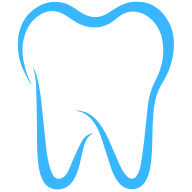6 Potential Benefits of AI in Dentistry
Artificial Intelligence is revolutionizing the field of dentistry, bringing unprecedented advancements to patient care and clinical practices. From enhancing pediatric dental experiences to streamlining appointment scheduling, AI is transforming every aspect of oral health management. These technological innovations promise to improve diagnostic accuracy, treatment planning, and educational methods in ways that were once thought impossible.
- AI Enhances Pediatric Dental Care
- Robotic Systems Revolutionize Dental Procedures
- Predictive Analytics Transforms Oral Disease Detection
- Virtual Reality Advances Dental Education
- AI Streamlines Dental Appointment Scheduling
- AI Personalizes Dental Treatment Planning
AI Enhances Pediatric Dental Care
AI will not replace pediatric dentists, but it will raise the standard of care. Tools like AI-assisted radiograph reading already help detect cavities earlier. These systems analyze images frame by frame, flagging areas of concern with a level of detail that supports faster, more accurate diagnosis. This means your child spends less time in the chair and avoids more invasive treatment later.
AI can also help track developmental changes. In pediatric patients, timing matters. AI can compare records, monitor tooth eruption patterns, and identify deviations before they become problems. It allows us to act early, especially in cases like delayed eruption or crowding.
Scheduling, charting, and follow-up systems powered by AI reduce the administrative load on staff. That gives us more face time with patients. You get quicker service, more accurate records, and better continuity of care. Parents notice the difference when everything runs on time and nothing falls through the cracks.
Still, clinical judgment matters. No AI can read a child's anxiety or adjust a treatment approach in the moment. Pediatric care is personal. AI should support, not replace, the relationship between the dentist, child, and parent. We'll see more tools added to the toolbox, but the heart of care will always be human.

Robotic Systems Revolutionize Dental Procedures
AI-powered robotic systems are revolutionizing dental procedures with their unparalleled precision. These advanced technologies can perform complex tasks with a level of accuracy that surpasses human capabilities. By minimizing the risk of human error, these systems ensure more consistent and reliable outcomes for patients.
The integration of AI in dental robotics also allows for less invasive procedures, potentially reducing patient discomfort and recovery time. As this technology continues to evolve, it promises to set new standards in dental care quality. Dental professionals should embrace these innovations to offer the best possible care to their patients.
Predictive Analytics Transforms Oral Disease Detection
Predictive analytics in dentistry is transforming the landscape of oral disease detection. By analyzing vast amounts of patient data, AI algorithms can identify patterns and risk factors that may go unnoticed by human practitioners. This early detection capability allows for more timely interventions, potentially preventing the progression of oral diseases.
Moreover, predictive analytics can help dentists create personalized prevention plans based on individual patient profiles. The use of AI in this field not only improves patient outcomes but also contributes to more cost-effective healthcare. Dental practices should consider implementing these predictive tools to enhance their diagnostic capabilities.
Virtual Reality Advances Dental Education
Virtual reality simulations are ushering in a new era of dental education and training. These immersive environments allow dental students to practice procedures in a risk-free setting, honing their skills before working on actual patients. The ability to replicate various dental scenarios enhances the learning experience, exposing students to a wide range of cases they might not encounter during their clinical training.
Virtual reality also enables experienced dentists to stay updated with the latest techniques and technologies. This innovative approach to dental education can lead to better-prepared professionals and ultimately improved patient care. Dental schools and continuing education programs should explore the integration of VR simulations into their curricula.
AI Streamlines Dental Appointment Scheduling
Automated appointment scheduling powered by AI is streamlining dental practice management. These systems can efficiently manage bookings, considering factors such as procedure duration, equipment availability, and staff schedules. By optimizing the appointment process, dental practices can reduce wait times and minimize gaps between patients, leading to improved productivity.
Automated scheduling also helps in reducing no-shows by sending timely reminders and allowing easy rescheduling options for patients. This technology not only enhances the patient experience but also allows dental staff to focus on more critical tasks. Dental practices should consider adopting AI-powered scheduling systems to boost their operational efficiency.
AI Personalizes Dental Treatment Planning
AI-assisted treatment planning is revolutionizing personalized patient care in dentistry. By analyzing a patient's dental history, genetic factors, and lifestyle habits, AI algorithms can suggest tailored treatment strategies. This personalized approach takes into account individual patient needs and preferences, potentially leading to better treatment adherence and outcomes.
AI can also simulate treatment results, allowing patients to visualize the expected outcomes before committing to a procedure. Furthermore, these systems can continuously learn from treatment results, refining their recommendations over time. Dentists should explore AI-assisted planning tools to enhance their ability to provide customized, effective care to each patient.

